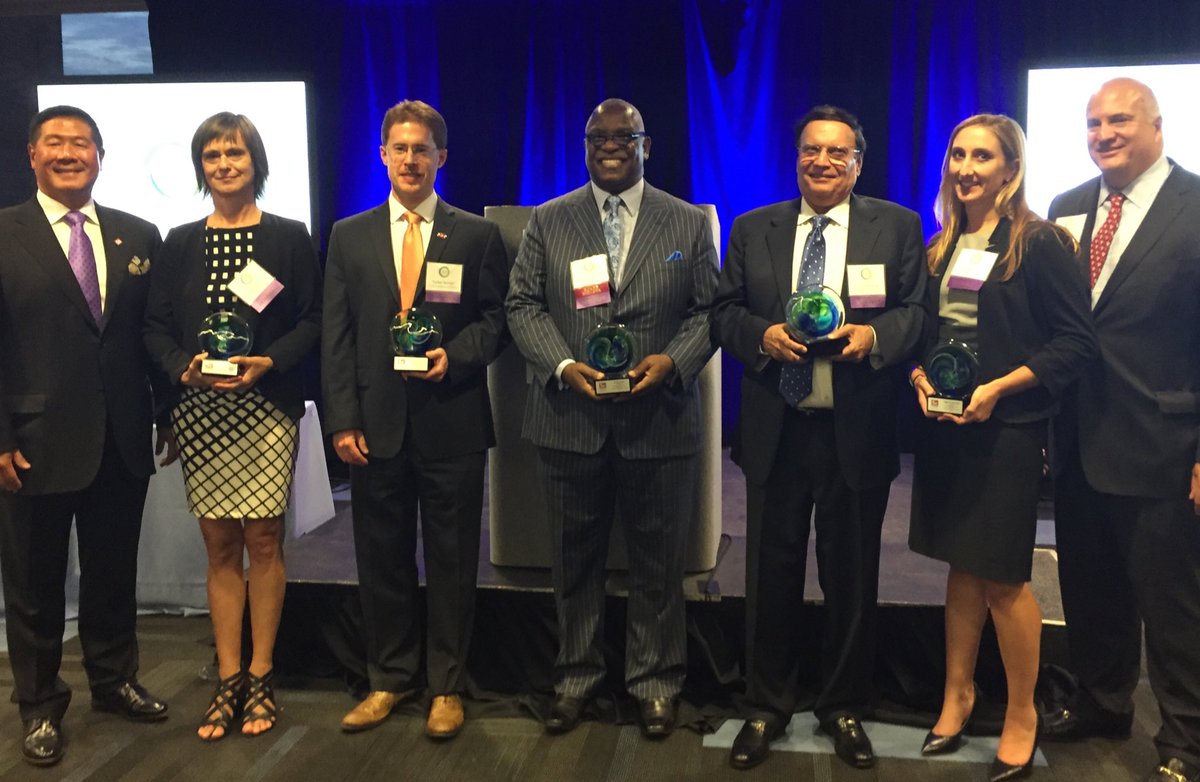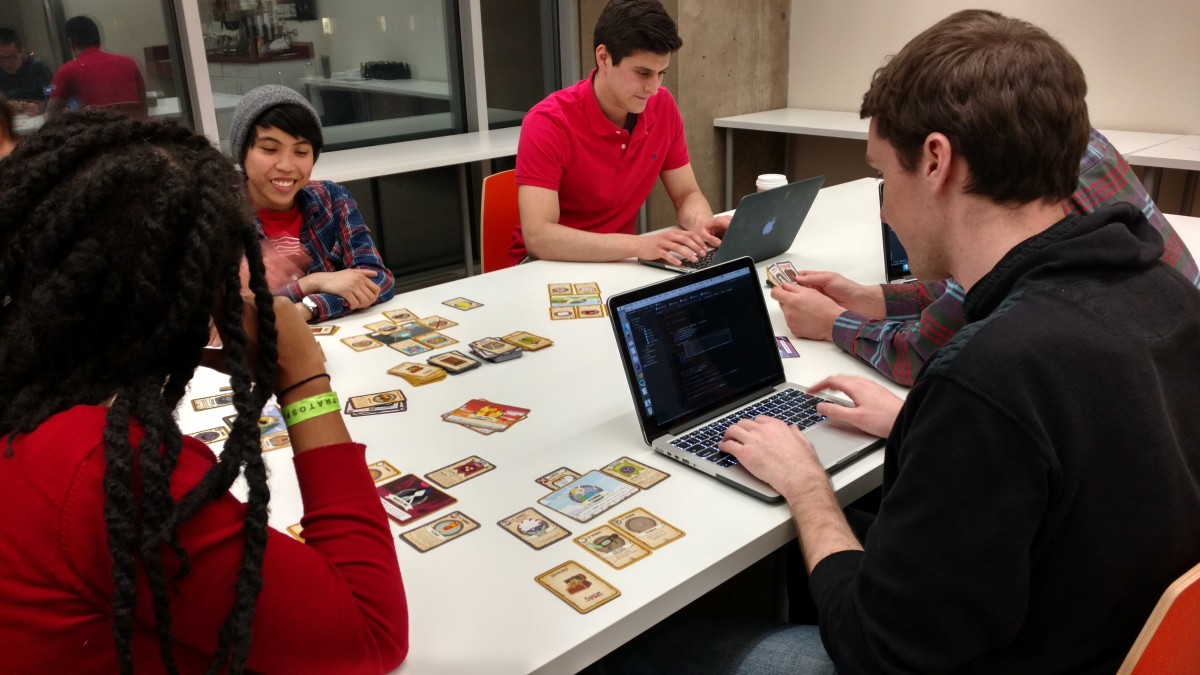Hailing from places Holland, Nigeria, and Czechoslovakia, a group of six immigrant entrepreneurs with deep ties to the Philly area were announced as the next entrants to the University City Science Center’s Innovators Walk of Fame.
“These honorees represent the, power, potential and impact of the immigrant community” said Science Center CEO Stephen Tang. “The 2017 Innovators Walk of Fame honorees celebrate their ideas that have changed the world, the jobs they’ve created, and the legacies that have paved the way for future immigrants and innovators.”
The Science Center’s decision to focus on immigrant entrepreneurs comes in a year that has seen immigrants to the U.S. face the rescission of benefits like the Deferred Action for Childhood Arrivals and the barring of immigrants from predominantly Muslim nations. From Comcast to SAP to young startups like Borderwise, tech hasn’t remained quiet.
Here’s the lineup of entrepreneurs plus a recap of their contributions from the Science Center:
- Éleuthère Irénée du Pont (France)
When French-born chemist Éleuthère Irénée du Pont built his gunpowder mills on the banks of the Brandywine River in Delaware in the early 1800s, he sowed the seeds of scientific exploration that became the hallmark of the DuPont company. E.I.’s legacy lives on through pioneering DuPont technologies. Products like Nylon, Teflon, Corian and Kevlar have transformed safety, fashion and agriculture – and created thousands of jobs around the globe.
- Hubert J.P. Schoemaker (Netherlands)
The biotech sector was in its infancy when Hubert J.P. Schoemaker cofounded Centocor in 1979. Buoyed by his vision and leadership, the Dutch-born Schoemaker helped put Philadelphia on the map as a biotech center. Centocor, one of America’s first biotech companies, created thousands of jobs while improving the lives of millions of patients suffering from auto-immune diseases such as rheumatoid arthritis, psoriasis and Crohn’s disease. Centocor’s signature product, Remicade, continues to be a top-selling drug for parent company Johnson & Johnson.
- Osagie Imasogie (Nigeria)
Self-described as “Nigerian by birth but American by choice,” Osagie Imasogie is leaving a deep mark across the life sciences industry and civic community in Philadelphia. He’s a co-founder of Phoenix IP Ventures (now known as PIPV Capital) and Ception Therapeutics, Inc., the founder of Trigenesis Therapeutics, Inc., founding Vice President of GlaxoSmithKline Ventures, Executive Chair of Iroko Pharmaceuticals, Chair of iCeutica, Inc., and a Trustee of the University of Pennsylvania.
- Krishna Singh (India)
Over the course of his career, the Indian-born Krishna Singh has had a wide-ranging impact on energy technology, nanotechnology and economic development. Over 120 nuclear plants around the world employ systems and equipment developed by his company Holtec International – many based on Singh’s patents. His commitment to advancing nanotechnology research led to the creation of the Krishna P. Singh Center for Nanotechnology at the University of Pennsylvania.
- Michael Solomonov (Israel)
Israeli-born chef and restaurateur Michael Solomonov staked his culinary claim with landmark restaurants Zahav, Federal Donuts, Percy Street Barbecue and others. The impact of Solomonov’s recent venture, Rooster Soup Company, extends far beyond the plate. A partnership between Federal Donuts and Broad Street Ministry’s Hospitality Collaborative, Rooster Soup Company provides meals, counseling, and medical and legal aid to the city’s homeless and food-deprived communities.
- Blanka Zizka (Czechoslovakia)
In the midst of the Cold War, 21-year-old Blanka Zizka packed enough clothes for a week, boarded a train with her then-boyfriend Jiri and defected from communist Czechoslovakia. Along with her meager possessions, she brought along a love for the theater and the arts. Once safely in the U.S., Blanka and Jiri, now married, took an entrepreneurial approach to the arts as they grew The Wilma Theater from a small feminist experimental troupe into one of Philadelphia’s most respected cultural institutions.
Congrats to #IWOF17 honorees Krishna Singh, Blanka Zizka, E.I. DuPont, Hubert J.P. Schoemaker, Osagie Imasogie & @mike_solomonov! #Nucleus17
— Science Center (@UCScienceCenter) September 14, 2017
The Science Center put out a call for submissions earlier this year, which were then reviewed by a group of entrepreneurs, investors and members of this media (full disclosure: this reporter was part of that committee.)
Here’s a short vid featuring interviews with some of the honorees:
Before you go...
Please consider supporting Technical.ly to keep our independent journalism strong. Unlike most business-focused media outlets, we don’t have a paywall. Instead, we count on your personal and organizational support.
3 ways to support our work:- Contribute to the Journalism Fund. Charitable giving ensures our information remains free and accessible for residents to discover workforce programs and entrepreneurship pathways. This includes philanthropic grants and individual tax-deductible donations from readers like you.
- Use our Preferred Partners. Our directory of vetted providers offers high-quality recommendations for services our readers need, and each referral supports our journalism.
- Use our services. If you need entrepreneurs and tech leaders to buy your services, are seeking technologists to hire or want more professionals to know about your ecosystem, Technical.ly has the biggest and most engaged audience in the mid-Atlantic. We help companies tell their stories and answer big questions to meet and serve our community.
Join our growing Slack community
Join 5,000 tech professionals and entrepreneurs in our community Slack today!





